#greek goddess enyo
Explore tagged Tumblr posts
Text

Here we finally have my finalised designs of the divine children of Zeus, Hades and Poseidon.
I wanted to combine their sacred animals into their designs, though some have the sacred animals of their parents because they didn’t have any themselves.
#greek gods#my art#greek mythology#mythology#greek myths#Hermes#artemis and apollo#artemis#Apollo#Athena#ares#ares deity#ares god of war#zagreus#melinoe#makaria#triton#hepheastus#Dionysus#greek goddess enyo#enyo greek mythology#enyo#eileithyia#hebe#apollo greek mythology#greek god apollo#greek god hermes#greek goddesses#greek goddess#greek pantheon
127 notes
·
View notes
Text




Adrestia and Ares as requested😊 I ended up enjoying the process a lot, so I just kept on and drew the other war goddesses as well!
I think that they’re interesting in a different way that Athena is, in that they are more directly associated with the violent parts of war🙂
241 notes
·
View notes
Note
Hera has to occasionally ask the younger Olympians about all this slang the kids are using because she wants to be a cool fun mom. One day she asks what a MILF is.
Her kids being embarrassed only for Zeus to overhear this conversation and demand to know who called his wife a milf lol
#greek mythology#ancient greek mythology#greek pantheon#greek goddess#hera#hera goddess#hera deity#hera greek mythology#zeus#zeus greek mythology#Zeus god#ares#hephaestus#hebe#eileithyia#Pasithea#Enyo
67 notes
·
View notes
Text
I so badly want to write for any of the Blood Of Zeus Women!!! They're all so pretty!!!
#Alexia#Hera#Ariana#Artemis#Enyo#Athena#Aphrodite#Demeter#Electra#Gaia#Gorgo#Hestia#Iris#Persephone#Rhea#Blade Lady#Scylla#Briares#Hecate#Blood Of Zeus#Blood Of Zeus Women#greek goddesses
37 notes
·
View notes
Text
Iliad!Zeus to his family when they go to war:
Aphrodite: Honey, maybe you should leave this to your sisters?
Artemis: Were you being mean, hmmm? Who beat you sweetheart, come I'll give you a hug.
Ares: I'm sick of your bloodlust!!
Poseidon: For Titan's sake, it's just a wall!
Hera: I'M GOING TO STRIKE YOU!! *gets seduced*
Athena: You will get your turn! STOP MEDDLING!!
Enyo: Oooooohhhh that was sooo good!! YES! RIGHT THERE!! Make them fight! Make them fight!!! AAAHHHHH! *faints out of excitement*
Bonus:
Everyone to Apollo: Please fight. We're bored and we're begging you, please fight.
Apollo, patting Hector on the head: Nuh-uh!
#hephaestus is not in this list because he and dio are staying out of they way of their unhinged family#ares#athena#hera#poseidon#apollo#enyo#artemis#aphrodite#zeus#greek god#the iliad#greek goddess#incorrect greek quotes#incorrect greek mythology#incorrect iliad#incorrect greek gods#iliad#homer#greek myths#greek gods#iliadposting#greek mythology#tagamemnon
39 notes
·
View notes
Text
[Enyo sending a video of herself to Hera] Enyo: I look just like you lol Enyo: especially here when I made that face in the beginning. Hera: Yes Hera: but i had a husband at 28. Enyo: GOODNIGHT.
#LOL#i'm tied between thinking that. as the goddess of marriage. hera would want all her children to be married#but also. since her marriage is so crap. she doesn't want any of them married.#any thoughts?#enyo#hera#greek gods#greek mythology#incorrect greek gods#incorrect greek mythology#incorrect mythology#mythology#s: idk#queuetzalcoatl
53 notes
·
View notes
Text
*Enyo and Ares are on a date*
Enyo: One question.
Enyo: You're not a serial killer, are you?
Ares: How many times does it take to get to 'serial'?
Enyo: I don't know..... Five...?
Ares: Oh no, we're good.
#mythology memes#incorrect quotes#incorrect mythology#incorrect mythology quotes#greek mythology#incorrect greek mythology#incorrect greek myths#incorrect myths#greek myths#incorrect greek gods#greek gods#greek god#greek goddess#ares#ares deity#enyo#incorrect greek god quotes#ancient greek mythology#classical mythology#greek myth memes#greek mythology memes
88 notes
·
View notes
Photo
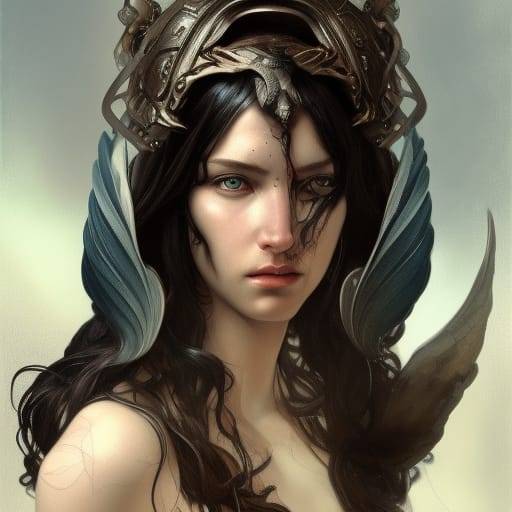

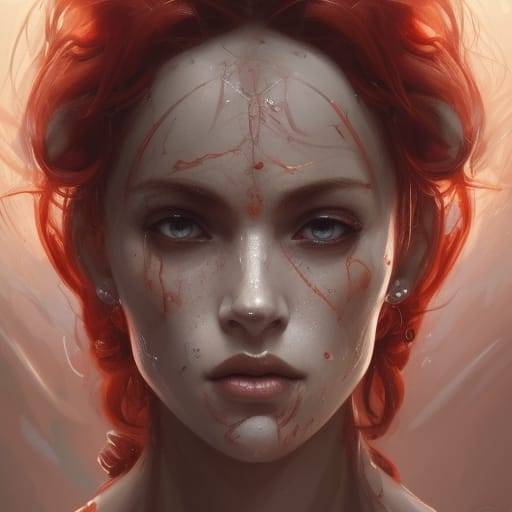
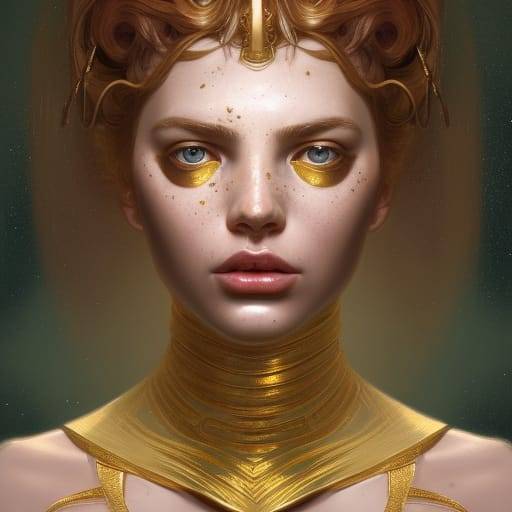

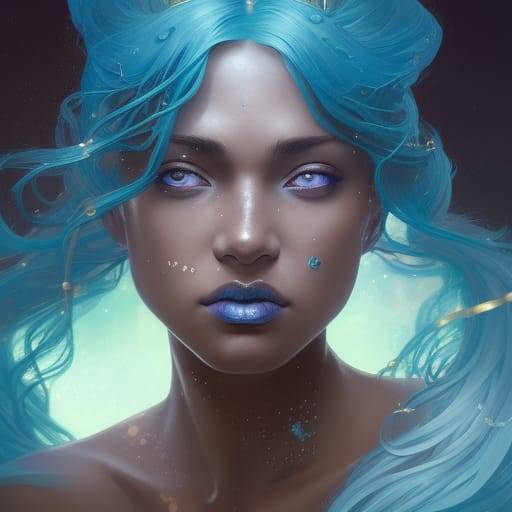

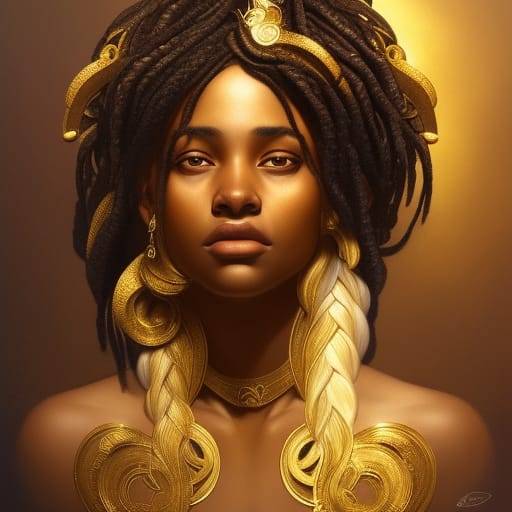

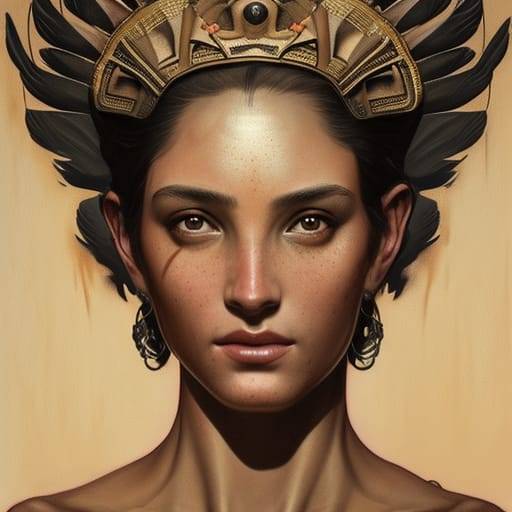
goddesses in real life: eris, psyche, enyo, tyche, hedone, amphitrite, harmonia, eos, hemera, nike
#idk how to caption it#greek mythology#eris#psyche#enyo#tyche#hedone#amphitrite#harmonia#eos#hemera#nike#greek myth#goddesses
269 notes
·
View notes
Text
The other Olympians: Eris
After Eros, I just HAD to do Eris. Everybody keeps speaking of “Eros and Thanatos”, the pulsion of life and the pulsion of death – but what about Eris and Eros? Hate and love. One causes division, the other unification. One destroys the world, the other creates it. Heck, they are even just one letter away from each other!
“But…” I heard some of you say. “Eris isn’t an Olympian!”. Well yes and no. Sometimes she is, sometimes she isn’t. Let us explore that.
Who is Eris? The word “eris” means “strife” in Greek, and this is exactly what Eris is. She is the goddess of strife and the embodiment of discord (in fact, her Roman name was Discordia). She is the eternal enemy of peace and order, always searching to break harmony and cause troubles everywhere she goes.
Now before going further, I want to insist on something. Eris is not an actual goddess, in the sense we can understand it. Yes Eris is presented as a goddess in Ancient Greek literature and in the various epics forming Greek mythology. However here’s the thing… Eris was not part of Greek religion. Or if she was, she had no temples, no sanctuaries, she received no cult and no worship, nobody prayed or sacrificed to her. Eris only seems to exist in literature and philosophy – she was not an actual religious figure of Ancient Greece, even though she was a key character of Greek mythology.
I) The Hesiodic Eris
The Eris most people are familiar with today is the one I would call the “non-Olympian Eris”. It is the Eris described in Hesiod’s Theogony, as well as in his “Works and Days”.
Hesiod describes Eris as the daughter of Nyx, the embodiment of night and one of the primordial goddesses who manifested at the very beginning of the universe. According to Hesiod, Nyx was a quite negative figure, since all the children she gave birth to were actually the personifications of ills and disasters: beyond Eris, Nyx also gave birth to Thanatos, the god of death, to the Keres, the spirits causing violent and painful deaths on the battlefield, Oizys, the personification of misery, Apate, the embodiment of deceit and treachery, Geras, the god of old age and aging, and many many more… Interestingly, in turn Eris also became the mother of a large brood of personifications, each embodiments of even more evils that plagued and tormented humanity. No father is mentioned for these children – but given Nyx seemingly used her powers as a primordial goddess to have her children on her own, without the participation of any male entity, it is very likely that Eris inherited or used the same abilities. Remember, from our talk of Eros in previous posts, the beginning of the world in Hesiod’s universe was not defined by gender, and the primordial Eros was a creature of cosmic, abstract procreation that went beyond mere sexes.
Hesiod gives us an exact list of the numerous children of Eris. On one side you have “singular” children acting as specific personifications: Ponos (toil, hard work), Lethe (forgetfulness, oblivion), Limos (hunger, starvation), Ate ( mistakes, delusions, folly, recklessness, all things that bring ruin) and Dysnomia (lawlessness, absence of civil order). On the other side, Hesiod lists groups of entities, representing “swarms” of concepts: the Algea (the pains and sufferings), the Hysminai (fights and feuds), the Makhai (battles and conflicts), the Phonoi (murders), the Androktasiai (literaly the man-slaughters), the Neikea (the quarrels), the Pseudo-Logoi (the lies), the Amphilogai (the disputes)… Remember what I said previously, Eris was not an actual religious figure but a literary one – and the same way, all of her children are here mere metaphors and allegories. Hesiod is merely listing here all the effects that strife and discord have within human society. Hesiod adds to this list of children a final son of Eris, Horkos, the god of oaths. Why would “oaths” be a bad thing you ask? Because Horkos is more specifically the deity in charge of punishing oath-breakers, the spirit that all those that make false oaths fear. Hesiod even says that Horkos will make more damage to anyone breaking an oath than all of his siblings – and he later mentions, in his “Works and Days”, that the ERYNIES themselves acted as midwives when Eris gave birth to him.
Hesiod describes Eris as a hateful and harsh being, only concerned with causing slaughters and “evil wars” on Earth (remember the Athena/Ares divide, there was for the Greeks a good way of making war, and a bad way of making war). He mentions that no mortal being loves Eris, but that human still “promote” her – but only due to either compulsions (the natural drive of humanity to fight with each other) or by the “will of immortals” (when the gods purposefully send Eris among mankind). When Hesiod describes the legendary shield of Herakles, he mentions that Eris is depicted upon it among the many terrifying entities meant to frighten his adversary – he adds there that Eris is without pity or mercy, and that her mere sight will break the mind of anyone trying to attack the hero.
However, mind you, despite this very negative portrayal of Eris, in his “Works and Days”, Hesiod allows himself a philosophical or social myth about Eris, where he divides her into two identities, one good and one bad. If you recall my Eros posts, there is yet again a parallel with how there are two Eroses. According to Hesiod two Eris are at work among humans: the one he keeps describing above is the “evil” Eris ; but there is a “kinder” and older Eris, who is the one born of Nyx at the beginning of time, and who is even… likeable! Because this Eris is a positive form of strife, a productive form of discord that isn’t about having people slaughter each other, but prompts each human to excel and outdo each other in talents and arts. Specifically sent by Zeus among humans for this very purpose, the elder Eris will for example make a poor man envy his rich neighbor, prompting him to work even harder to become rich himself – and thus she can turn even the laziest man into a hard worker. This Eris isn’t so much about discord, as about a sort of mutual envy between humans that creates a competitive society, indeed, but one that prompts each human to try their best at becoming better than others.
II) The Homeric Eris
Hesiod mentions that of the two Eris, only the “elder” is the daughter of Nyx. Then, where does the “evil” Eris comes from? Well, Hesiod might have been evoking here another cosmogony… I am of course speaking of Homer’s own works, The Iliad and the Odyssey. For you see, the Homeric tradition and the Hesiodic tradition diverge strongly when it comes to the figure of Eris, and it is in the Homeric cosmogony that Eris is presented as an Olympian goddess.
Homer depicts Eris just as negatively as Hesiod. He describes her as a goddess with “relentless wrath”, as the “lady of sorrow”, as a “destroyer of cities”, and even depicts her during a battlefield scene as working in a triad alongside Ker (the spirit of violent death) and Cydoimos (the personification of confusion). But where he changes the story (or rather where Hesiod changes the story, since it is agreed that the Homeric tradition is older than the Hesiodic one, and reflects a more primitive form of the Greek pantheon), is when it comes to Eris’ parenthood. Homer explicitly presents Eris as working in a duo with Ares, the Olympian god of war, the two being “companions”. But more than companions… Siblings. Homer insists heavily on the fact that Eris is Ares’ sister, and given Ares is in the Homeric tradition the son of Zeus and Hera, it is very clear that Eris is also the daughter of the king and queen of the gods.
No need to tell you that Eris’ strongest presence in the Homeric tradition is within The Iliad, aka the epic describing the greatest mythological conflict of all times, the Trojan War. Eris is there usually paired with another deity: sometimes she forms a duo with Athena, and helps her in her role as a “war goddess” to encourage men to fight by her side ; other times she is alongside her brother Ares, as the spirit of hatred that complements the god of murder and bloodlust. This depicts Eris as a very ambiguous deity, that can serve and help as much the senseless, brutal, “wrong” war of Ares as the “good”, ordered, intelligent and civilized war of Athena. An even more interesting detail however shows that this ambiguity does not actually exist: Ares fought on the side of the Trojans during the war, while Athena fought with the Achaeans. This is a detail Homer himself notes and explains in his poem: Eris purposefully played both sides, and found herself on each line of the battlefront, since all she cared about was spreading bitterness and pain, so as to make the slaughter of the Trojan War even greater. Sometimes she does this to further the gods’ desires and plans: Zeus at one point, wishing for the Achaeans to keep on fighting and not just give up, send Eris among them so that she would bellow a great war-cry, so “terrible and so loud” it made every man who heart it want to battle again. But other times, she disobeys even the orders of the king of the gods out of pure perversion: most notably, when Zeus at one point gave the order to all the gods to stop interfering with the war and remain far away from humans, without causing interferences, Eris is the only goddess that remains upon the earth and among humans – merely because she takes a “great pleasure” in seeing them “battle like wolves”, and wouldn’t miss it for the world.
In short: while it seems from the outside that she is actually more of a neutral power that can serve both sides, good and bad, in truth she is a selfish, neutral psychopath only existing for chaos and destruction, and who only accepts to play by the rules when it furthers her own goals.
One last interesting fact: Homer, in his poems, keeps using another name for Eris, a name that many later mistook as being a different goddesses – however, at least in the Homeric tradition, they are just two identities of a same deity. “Enyo”, that is to say the female spirit and embodiment of war, the female counterpart of Ares. Beyond Homer, Aeschylus, in his tragedy about the Seven against Thebes, describes the Seven as making an oath upon the dreadful trinity of war formed by Ares, Enyo and Phobos – in a similar way, Eris was already described by Homer as part of a trinity involving Ares and Phobos (who also stood for his brother Deimos). The idea of Enyo and Eris being different deities seems to come from quite late sources, such as Quintus Smyrnaeus’ epic “The Fall of Troy”, from the fourth century CE, which did a very clear split between Eris (the deadly strife, which causes the battles by causing an “unbalance in the scales of war”, and then watches and gloat as humans fight) and Enyo (a ghastly and wrathful deity who fights inside the battles, and ends up gore-covered and all bloody and sweaty from her constant massacre of mortal beings). In fact, from the third to the fifth century, it became common to attribute to Enyo a “gore-fetish”, as she was described as delighting in piles of corpses left on the battlefield, or getting drunk on the flow of blood ; as well as the power to drive completely mad whoever she “touched”. Mad with war-lust and battle-fever, of course. But originally, for Homer and other early authors, Enyo and Eris were clearly just one and the same, two names for a same goddess.
What is quite fascinating with Enyo is that, unlike Eris which is purely literary, Enyo has some ground for actually having been a religious figure. Now, this is to be taken with a grain of salt, as the Greeks gave the name “Enyo” to several non-Greek deities of the countries east of Ancient Greece – but we have records of a statue of Enyo appearing in the Athenian temple of Ares, and it seems that the deities honored during the Homolôïa festival (in Thebes and Orchomenos) included Enyo. But beyond those two little facts, we don’t have more information about a potential cult of Enyo, who truly seems to be more of a female counterpart or extension of Ares. A last interesting point with Enyo is the presence of a name: Enyalios. Enyalios is the male form of Enyo, and is the name of a deity associated with her – but how? That is the question. Very, very late commenters of the Iliad (we are talking Byzantine commenters) made Enyalios a minor spirit of war, son of Enyo and possibly fathered by Ares. However, a more careful study of the use of Enyalios reveals that it is not the name of a distinct deity as many like to believe. Homer uses it as an epithet for various characters, but most notably for Ares. Other Ancient Greek authors also used Enyalios as an alternate name for Ares: Aristophanes in his play “Peace” (people claim it is used as two different deities, but I do not read it that way, I do think Aristophanes used the name as a nickname of Ares), for example, and Ares is also called “Enyalios” in the Argonautica. Plutarch did mention the existence of a temple of “Ares Enyalios” too, and the late myth collector Pausanias did mention the habit by Lacedaemonians of chaining up the deity Enyalios to prevent him from leaving the city – a custom identical to the habit of chaining up statues of Ares in Sparta. Overall, when you actually look carefully at things, it is extremely clear that Enyalios is just Ares.
And this confirms the true bond and link between Ares and Enyo: Ares is called by the male version of Enyo’s name, or rather Enyo is named after the female version of Ares’ nickname. This reinforces the idea of her being equivalent to Eris, presented by Homer as the sister-companion of Ares, and this feeds into this topic of the “duo of slaughter gods”. Ares/Enyalios, the male god of war, and Eris/Enyo, the female goddess of discord.
III) The golden apple
“But… What about the golden apple?” I hear you cry. “You talked about the Trojan War, but not about the golden apple!”
It is true that the most famous myth of Eris today is the one centered around the start of the Trojan War. It is the story of how Eris, upon not being invited to the wedding of Peleus and Thetis, despite all of the other gods being there, decided to take her revenge. It is the legend of how Eris threw among the feast of the gods a golden apple with on it written “For the most beautiful”, and how this random gift caused a deep feud between Athena, Hera and Aphrodite who all believed the apple was for them. It is the myth of how to settle the feud, the goddesses demanded the opinion of a Trojan prince by the name of Paris, who gave the apple to Aphrodite, resulting in her rewarding him as a gift with Helen, the most beautiful woman in the world… Who also happened to be the wife of Agamemnon, the Achaean king who promptly declared war upon Troy since their prince had kidnapped his wife – a war where the scorned Hera and Athena supported the enemies of Troy, while Aphrodite defended Paris’ city, leading into the legendary decades-old conflict we know today.
Well, you might be surprised to learn that this story does not come from Homer. Nowhere in the Iliad is a golden apple mentioned, or the involvement of Eris in causing the war. It comes from other sources. It does not mean the story isn’t ancient: on the contrary we have records of very ancient epics, probably created around the same time as The Iliad, who described and explained this legend. “The Cypria” for example is the oldest record we have of the story of the “Judgement of Paris”, caused by Eris’ apple of discord. However these ancient epics were all lost, so all we have are secondary testimonies about them, and much later and modern retellings of the story – such as the “Bibliotheca” of Pseudo-Apollodorus, where this old myth was collected in an abbreviate and concise form, or the fifth-sixth century CE poem the “Rape of Helen”, which like Nonnus Dionysiaca, was an attempt at reconstructing the ancient myths of the now-gone Ancient Greeks. While this is not an exact source and has to be taken with a handful of salt, this poem is quite fascinating because it adds all sorts of details about the situation: including how the decision of not inviting Eris came from both Peleus and Chiron (the latter sent out the invitations), and how, before imagining her devious golden apple plan, the furious, fulminating, jealous Eris conjured up plans ranging from stealing Zeus’ thunderbolt and use it as a weapon against the gods… to freeing the imprisoned Titans so they would overthrow Zeus. (Yes, Disney’s Hades does exist in old – but not ancient – Greek literature, and her name is Eris). There is also the additional detail that the golden apple used by Eris is one of those that the Hesperides grow in their orchard, the same golden apples Herakles had to collect during his labors.
Speaking of Herakles, all the way back to the sixth century BCE, Aesop wrote a fable about Eris. Yes, THIS Aesop of the Fables. And he wrote one with Eris and Herakles – one that also involves an apple, and thus furthers proves that the story of Eris using apple to cause discord was an ancient part of Greek mythology. In Aesop’s fable, Heracles was going through a narrow pass when he saw an apple on the ground before him. He tried to smash it with his club, only for the apple to swell to twice its size. Heracles hit it again and again, but every time he tried to destroy the obstacle, it grew bigger. In the end, the whole pass was blocked by the giant apple (slip a Roald Dahl joke here), and as Heracles stood amazed and confused, Athena appeared by his side and explained the situation: this apple is actually the product of two personifications, Aporia (impasse, puzzlement, lack of passage) and Eris. By trying to fight it, Heracles made it larger and bigger – if he had just left the thing on the ground untouched, and ignored it, it would have stayed its size. In short, the moral is that strife and discord will always be there somewhere, but that it only becomes a true obstacle or something serious if you let violence take over you or decide to enter the fight instead of just passing over it.
This conception of Eris as something “growing in size” is not actually a pure invention of Aesop: it was already present, way back in the Homeric tradition. Indeed, when Homer first introduces Eris in The Iliad, he describes her as such: she always appears first as a “small thing”, as a little force, a miniature goddess, but as chaos and battles and discord grow around her, she too grows, and gains in size and largeness, until in the end she becomes a giantess who feet are on earth while her head is in heaven.
31 notes
·
View notes
Text

she who is enyo •
° by kissesonmymuse
she who is born blind,
borrows an eye from her sister to see.
the man attacking from behind,
will soon scream and plea.
she who is elated in war,
is the only one who is fair?
the bodies she throws in the water come ashore,
the anglers yell in fear, unaware.
she who rides beside Ares, the God,
shall inflict her wrath.
those who dare to call her a fraud,
will be sacrificed in a bloodbath.
•°•

#poetry#greek tumblr#greek gods#greek mythology#greek posts#enyo#goddess#ares god of war#original poem#literature#poems on tumblr#poems and poetry
7 notes
·
View notes
Text
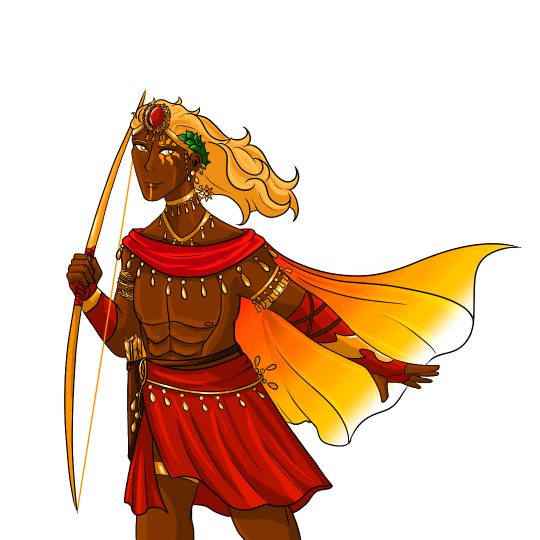
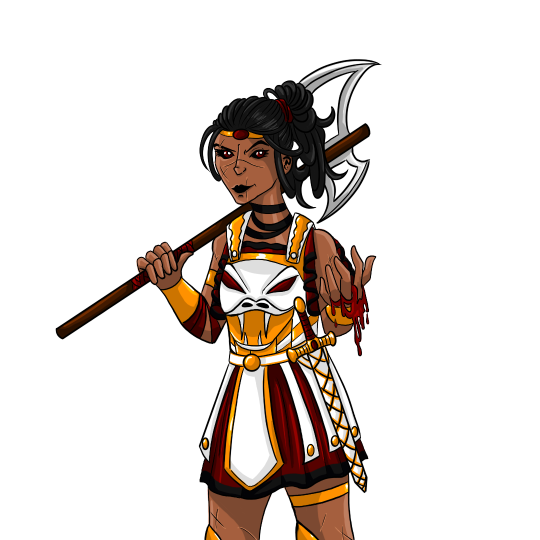
Updated my design on Apollo and finally got around to drawing Enyo!
#greek gods#gods#my art#greek mythology#mythology#greek myths#apollo#goddesses#greek#my design#enyo#greek god apollo#Greek goddess Enyo#goddess of war#god of music#shining apollo#phoebes apollo#apollo greek mythology#Enyo Greek mythology#children of zeus
31 notes
·
View notes
Note
Do you have your personal top art with Enyo?
Well... I have to draw it but currently I'm already on another project (always concerning Enyo lol I will post when I'll finish it)... This one abt a dream (yes I'm serious) I had last night...
I have a lil drawing I did in December 2023 where there's Enyo... it's not so nice but here it is:

I swear I liked it when I drew it the 1st time and I left it as it was but now... Well...
I HAVE TO make a new concept art
3 notes
·
View notes
Note
I feel like people who use Ares as a villain should just use Enyo. She’s also brutal and blood thirsty but has like 0 characterization. You can go wild. And Homer conflates her with Eris at times so she’s got a pretty big previous event to reference. And like both Eris and Enyo have tons of kids to use as like minions

I want Enyo and Ares to basically be like this.
#ares is surprising chill outside the battlefield#he’s even been thought to dance before being taught to wield weapons#and he’s an utter simp to Aphrodite so portraying his as domineering and abusive to her is dumb#greek mythology#ancient greek mythology#greek pantheon#greek goddess#enyo#ares#Enyo goddess#Eris#ares deity#ares god of war#ares greek god
57 notes
·
View notes
Text
Character Intro: Enyo (Kingdom of Ichor)


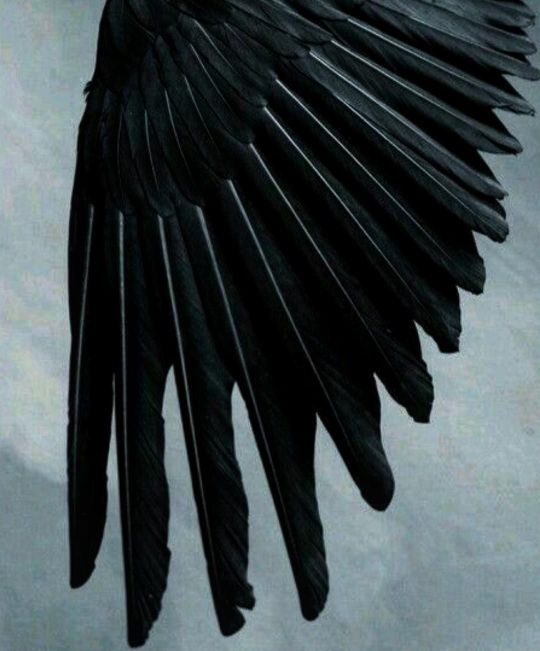







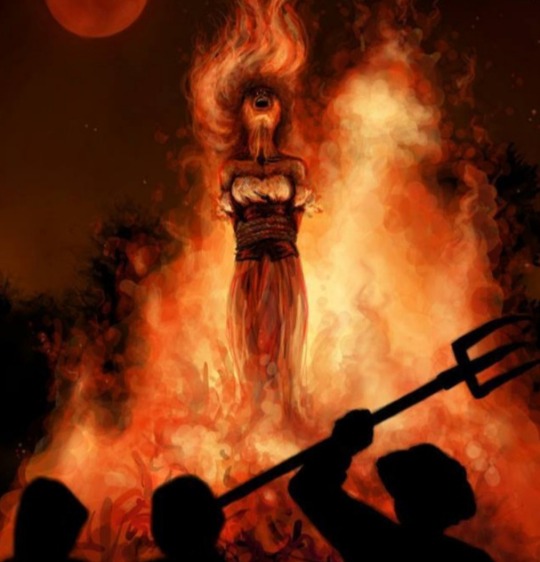




Nicknames- The Bloody Goddess by the people of Olympius
Vicious E by Ares
Bullet Babe by Zeus
Age- 39 (immortal)
Location- Little Sparta, New Olympus
Personality- An ultimate bad-ass, she's well known in the pantheon for her short temper! She's unapologetically brutal, harsh, & unforgiving. Positively, she's fiercely determined and passionate. She's recently married.
She has the standard abilities of a goddess. As the goddess of war, destruction, bloodlust, & devastation her powers/abilities include pyrokinesis (her fire burns a bright red), limited geokinesis (can cause earthquakes- not to the level of Poseidon), odikinesis (manipulating the feelings of rage, anger, & violence in others), flight (due to her black swan like wings), telumkinesis, being able to communicate with/shapeshift into her sacred animal- the swan, haemokinesis (blood manipulation), and summoning weapons out of thin air.
Enyo's main abode with her husband is the top floor of The Stratios, a luxury high rise apartment building in the Little Sparta neigborhood of New Olympus. They also own a mansion estate in Sparta & are thinking about getting a beach house in Themiscyra. Inside the apartment, the ceilings and walls are made out of pure bloodstone while the floors are a flawless black marble. There are lots of metal & leather furniture with many decorative pieces of armor, helmets, and weapons lining the walls. There's a separate war room as well as a room that's filled with a wide arsenal of various weapons. When Enyo is not in the mood to use her wings, she gets around in her sleek black sports car. She has two pets- twin dragons (a boy & girl) named Bellum and Bellona. Their bright crimson & silver scales are often complimented on!
A go-to drink for her is a cranberry martini. She also likes red hot shots, bloody marys, mulled wine, beer, negronis, manhattans, red wine, dark cherry cola, & black raven cocktails. Her usuals from The Roasted Bean are the large cranberry cherry spalsh and olympian sized roast coffee (with a bit of sugar).
Enyo starts off her mornings with a super intense cardio workout along with a session of kickboxing at the gym. She then goes to the spa for a session of acupuncture.
She loves steak & eggs for breakfast, putting way too much inferno hot sauce on top! She likes her bacon extra crispy and nearly burnt & she also likes when her husband makes his eggplant-ground pork stuffed steamed buns.
Enyo surprisingly has her own glamour doll collectible!
One notable moment in her godly career was when she awarded the gold medal to a giantess named Atonia at the Olympic Tournament who broke the record for the javelin throw!
A favorite sweet treat of hers is chocolate cherry ice cream.
Enyo is well versed in many fighting styles including mixed martial arts, capoeira, kyusho jitsu (pressure point martial arts), muay thai, and pankration!
She once almost came to blows with Themis (Titaness of justice) after she rendered a verdict in a court case where Enyo was in attendance.
In the pantheon she's friends with Aegaeon (god of sea storms), Hysminai (goddess of fighting & combat), Gymnasia (goddess of excercise & gymnastics), Philotes (goddess of sex, friendship, & affection), Dyssebeia (goddess of ungodliness & impiety), Proioxis (goddess of attack, onrush, & battlefield pursuit), Dione, Adikia (goddess of injustice & wrongdoing), Kéfi (goddess of mirth), Atë (goddess of mischief, ruin, blind folly, delusion, & downfall of heroes), Hybris (goddess of insolence, hubris, & reckless pride), Lycana (Titaness of lycanthropy), Perses (Titan god of destruction), Menoetius (Titan god of anger, violence, & rash actions), Poena (goddess of punishment), Alastor (god of blood feuds & vengeance), Felis (Titaness of cats), and Kakia (goddess of vice & moral wrongdoing).
Enyo doesn't mind Athena (goddess of wisdom) and has on more than one occasion been impressed with her.
Outside the pantheon, she has friends who are Giants & Amazonians.
Enyo has been a mentor twice- to Lyssa (goddess of rage & frenzy) and Eris (goddess of strife & discord).
She loves getting the spicy BBQ rib sandwich from The Bread Box.
Enyo recently got married to her husband Polemos (god of the war cry) three months ago on a private beach in Sparta (this particular beach is known for its black sand). They first met a year ago during construction of the Thereitas military base in the city. To say their chemistry was instantaneous is an understatement! Perses jokingly remarked that the initial meeting was akin to "a bomb meeting a stick of dynamite." They couldn't keep their hands off each other during photos at the grand opening of the 2nd largest military base in New Olympus. A week after his divorce from Ioke (goddess of pursuit, tumult, & battle rout) was finalized, Polemos proposed to Enyo with a yellow gold band custom oval cut rhodolite garnet ring surrounded with yellow canary diamonds, rubies, & white diamonds. Her wedding dress was far from traditional (garnering an audible gasp from Hera)- a backless curve hugging sheer black dress with a corset bodice and tulle sheer skirt.
She loves the Olmorfia matte lipstick in "Carnivorous", a dark red color.
Enyo has a good relationship with her step-daughter Alala (goddess of war cry). When Alala visits they'll go shopping, check out the latest action movie at the cinema, & go to the gun range.
A guilty pleasure of hers are olympian sized cajun fries from Olympic Chef!
Her main job is overseeing the Thereitas military base with her husband. For other sources of income, she models for/endorses Delicious Xtasy, Megaleio, & atelier fantaisie. She also sometimes writes for The Oracle newspaper and O Dianooumenos. Enyo is also a professional wrestler! Her stage name is Black Widow & some of her signature moves include the riptide, pop-up body toss, prism trap, stalling suplex, & full nelson slam. There's excited and frightened buzz about an upcoming match between her & the cyclops Maneater.
She once knocked a mortal guy out cold when her tried grabbing her ass while she was walking with Alala.
One of her favorite gifts she Enyo ever got was the white gold bloodstone & onyx charm bracelet from her husband.
Kéfi gave her a swan shaped jeweled clutch from Diamond Ave. for Christmas.
Her & her husband are HUGE basketball fanatics! When watching games, they always rep for their favorite team- the Sparta Spears!
Some of Enyo's favorite foods include sausage & pepper skewers, feijoada with white rice, baião de dois, steak (well done) smothered in onions, lamb souvlaki, & moussaka.
In her free time she enjoys working out, sword fighting, boxing, mountain climbing, basketball, riding on dragonback, volleyball, archery, cliff diving, baseball, volcano boarding, clubbing, and lava surfing.
"I don't know of any lesser evil than war."
#my oc#oc character#my character#my oc character#enyo#oc intro#character intro#oc introduction#character introduction#modern greek gods#modern greek mythology#greek myth retellings#greek goddess#greek goddesses#greek mythology#greek pantheon#greek myths
8 notes
·
View notes
Text
I made a list of every single Greek god ever
Keep in mind some of these may be different from what you know because they have multiple different stories
Eros- god of love, passion, and fertility
Tartarus- god of darkest part in the underworld
Thalassa- goddess of the sea
Phanes- god of creation, new life, procreation, fertility, and light
Caligine- goddess of creation
Gaia- goddess of earth
Erebus- god of darkness and shadows
Nyx- goddess of night and darkness
Pontus- god of the seas
Hydros- god of water
Uranas- god of the heavens and sky
Achlys- goddess of the death-mist, misery, sadness, and deadly poisons
Aether- god of light and the upper sky
Ananke- goddess of inevitability, compulsion, and necessity
Chaos- god of the void
Cronus- god of time, fate, justice, and harvest
Caelus- god of the sky
Coeus- god of the North, intelligence, and resolve
Hemera- goddess of daylight
Hypnos- god of sleep
Nemesis- goddess of vengeance, retribution, and rightful fate
Thalassa- goddess of sea
Rhea- goddess of motherhood, fertility, childbirth, comfort, and good living
Oceanus- god of freshwater
Tethys- goddess of fresh water and nursing mothers
Hyperion- god of heavenly light and watchfulness
Theia- goddess of sight and vision
Lapetus- god of mortal life
Crius- god of constellations, stars, and the south
Phoebe- goddess of intellect, prophecy, and the moon
Themis- goddess of justice, law, order, and divine will
Iris- goddess of rainbows
Mnemosyne- goddess of memory
Zues- god of sky, weather, thunder, lightning, and law and order
Demeter- goddess of the harvest, agriculture, and fertility of the earth
Poseidon- god of sea, storms, earthquakes, and horses
Hades- god of the underworld and the dead
Hera- goddess of women, marriage, family, and childbirth
Apollo- god of sun and light, poetry, healing and disease, justice, archery, music and dance, prophecy and truth
Artemis- goddess of hunting, wild animals, and the wilderness
Aphrodite- goddess of beauty and passion
Ares- god of war and courage
Hephaestus- fire, volcanoes, blacksmithing, metalworking, craftsmanship, sculpture, forges, and metallurgy
Hermes- God of wealth, trade, thieves, and travelers
Athena- goddess of wisdom and strategic warfare
Dionysus- god of wine, festivity, and theater
Hestia- goddess of domestic life, home, and hearth
Hecate- goddess of magic and necromancy
Aeolus- god of the wind
Asclepius- god of medicine and healing
Eris- god of discord, jealousy, and strife
Pan- god of the wild, shepherds, flocks, rustic music, fertility, spring, and theatrical criticism
Eileithyia- goddess of childbirth, birth pains, and midwifery
Enyos- goddess of war, violence, and bloodshed
Evrynomi- water meadows, fertility, and pasturelands
Psyche- goddess of the soul
Hedone- goddess of pleasure, enjoyment, and delight
Dolos- god of trickery, cunning deception, craftiness, guile, and treachery
Senectus- god of old age
Oizys- goddess of misery, grief, anxiety, and depression
Moros- god of doom
Momus- god of satire and mockery
Tmolus- god of Mount Tmolus
Nereus- god of the sea
Phorcys- god of the sea and the hidden dangers that lurk beneath the waves
Ceto- goddess of sea monsters and other marine life
Eurybia- goddess of power over, and mastery of, the sea
Eurus- god of the east or southeast wind, fall, and storms
Aergia- goddess of laziness, idleness, sloth, and indolence
Eos- goddess of dawn
Astraea- goddess of justice, innocence, purity, precision
Boreas- god of the north wind, winter, storms, ice, snow, and cold
Chione- goddess of snow
Orithyia- goddess of cold mountain winds
Zephyrus- god of West wind
Notos- god of South wind
Euros- god of East wind
Hesperos- god of the evening and the evening star
Morpheus- god of dreams and nightmares
Pasithea- goddess of relaxation and rest
Icelus- god of nightmares
Phantasus- god of dreams that feature inanimate objects
Aigaion- god of violent sea storms
Achelous- god of fresh water
Alpheus- god of the Peloponnese
Clymene- goddess of fame and renown
Eurynome- goddess of water meadows, fertility, and pasturelands
Idyia- goddess of knowledge
Metis- goddess of wisdom and cunning strategies
Styx- goddess of oaths and the River Styx
Helios- god of the sun
Selene- goddess of the moon
Atlas- god of strength, endurance, astronomy, and navigation
Prometheus- god of fire, forethought, and crafty counsel
Astraeus- god of astrology and stars
Pallas- god of witchcraft
Zelus- god of dedication, emulation, eager rivalry, envy, jealousy, and zeal
Nike- goddess of victory
Via- goddess of force and power
Perses- god of destruction
Asteria- goddess of falling stars, nocturnal divination, and the connection between the heavens and the earth
Leto- goddess of motherhood, childbirth, modesty, and fertility
Eirene- goddess of peace
Dike- goddess of fair judgment and law
Persephone- goddess of grain and agriculture
Alatheia- goddess of truth
Asopos- god of the river Asopos
Ate- goddess of blind folly and ruin
Britomartis- goddess of hunting and fishing
Elieithyia- goddess of childbirth
Eirene- goddess of peace
Ersa- goddess of the dew
Eunomia- goddess of good governance
Harmonia- goddess of harmony
Hebe- goddess of youth
Hephaistos- god of smiths
Eunomia- goddess of law, governance, and good order
Kairos- god of opportunity
Aglaia- goddess of beauty, splendor, glory, magnificence, adornment, good health, and the glow of good health
Lakhesis- goddess of life and fate
Phasis- god of the river Phasis
Despoine- goddess of certain Arkadian Mysteries
Macaria- goddess of a "blessed" death
Melinoe- goddess of ghosts, nightmares, and propitiation
Zagreus- god of rebirth
Ploutos- god of wealth, riches, and abundance
Albion- god of the sea
Tilphousia- goddess of vengeance and justice
Phobos- god of fear, panic, flight, and rout
Pothos- god of sexual longing, desire, and yearning
Anteros- god of reciprocal love
Himeros- god of sexual desire and unrequited love
Hermaphroditus- god of effeminacy, androgeny, and hermaphroditism
Rhodos- goddess and personification of the island of Rhodes
Priapus- god of fertility
Erichthonius- goddess of earth
Tyche- goddess of fortune, luck, prosperity, chance, and fate
Horkos- god of oaths and the curse that befalls those who break them
Epione- goddess of soothing pain
Hygieia- goddess of hygiene and cleanliness
Panacea- goddess of universal remedy
Aceso- goddess of healing and wounds
Iaso- goddess of recuperation from sickness
Machaon- god of surgeons
Pandia- goddess of the full moon, dew, and youth
Telesphoros- god of recuperation
Enyalius- god of soldiers and warriors
Phosphorus- god of the planet Venus when it appears as the morning star
Triton- god of the sea
Carpus- god of fruit
Bia- goddess of force, power, might, bodily strength, and compulsion
Narcissus- god of vanity
Cephissus- god of the Cephissus river
Ismenus- god of the river of the same name
Eucleia- goddess of good repute, glory, and honor
Eupheme- goddess of good omen, praise, and acclamation
Euthenia- goddess of prosperity, abundance, and plenty
Philophrosyne- goddess of friendliness, welcome, and kindness
Euphrosyne- goddess of joy, good cheer, mirth, and merriment
Hephaestus- god of artisans, blacksmiths, carpenters, craftsmen, fire, metallurgy, metalworking, sculpture and volcanoes
Delphin- god of Dolphins
Aristaeus- god of beekeeping, cheesemaking, olive growing, and hunting
Electryone- goddess of the sun and morning
Circe- goddess of magic
Silenus- god of forests, wine-making, and drunkenness
Triptolemus- god of agriculture
Lyssa- goddess of rage, fury, and rabies
Soteria- goddess of safety, salvation, deliverance, and protection from harm
Leucothea- goddess of hope
Palaemon- god of harbors and sharks
Pasiphae- goddess of witchcraft and sorcery
Perses- god of destruction and peace
Phaunos- god of the forest
Maron- god of Maroneia
Astraeus- god of stars and planets
Limos- goddess of famine, starvation, and hunger
Benthesikyme- goddess of ocean waves
Amphitrite- goddess of the sea
Kymopoleia- goddess of violent sea storms and storm waves
#greek mythology#greek gods#olympian gods#zues#posideon#hera#peresphone#hades god of the underworld#demeter#aphrodite#hermes#ares#gaia#apollo#artemis#dionysus#athena goddess of wisdom#hestia#eris goddess of chaos#river styx#autism#ghostyanon#actually autistic#autistic things#nyx goddess#erebus#pontus#hypnos god#caelus#coeus
602 notes
·
View notes
Text
i just need a few opinions before i publish the first chapter
to give more context, the reader’s established name would be enyo, the ‘greek goddess of war, violence, and bloodshed’ according to google. call sign would be “merci”.
again, i will not be doing y/n for personal reasons. it will be second pov though.
#ao3 fanfic#fanfic#simon riley cod#call of duty#simon ghost riley#ghost cod#ghost call of duty#cod#ao3 writer#ao3 author#ao3#cod ghost#simon riley x black reader#ghost simon riley#simon riley x reader#tumblr polls#polls
20 notes
·
View notes